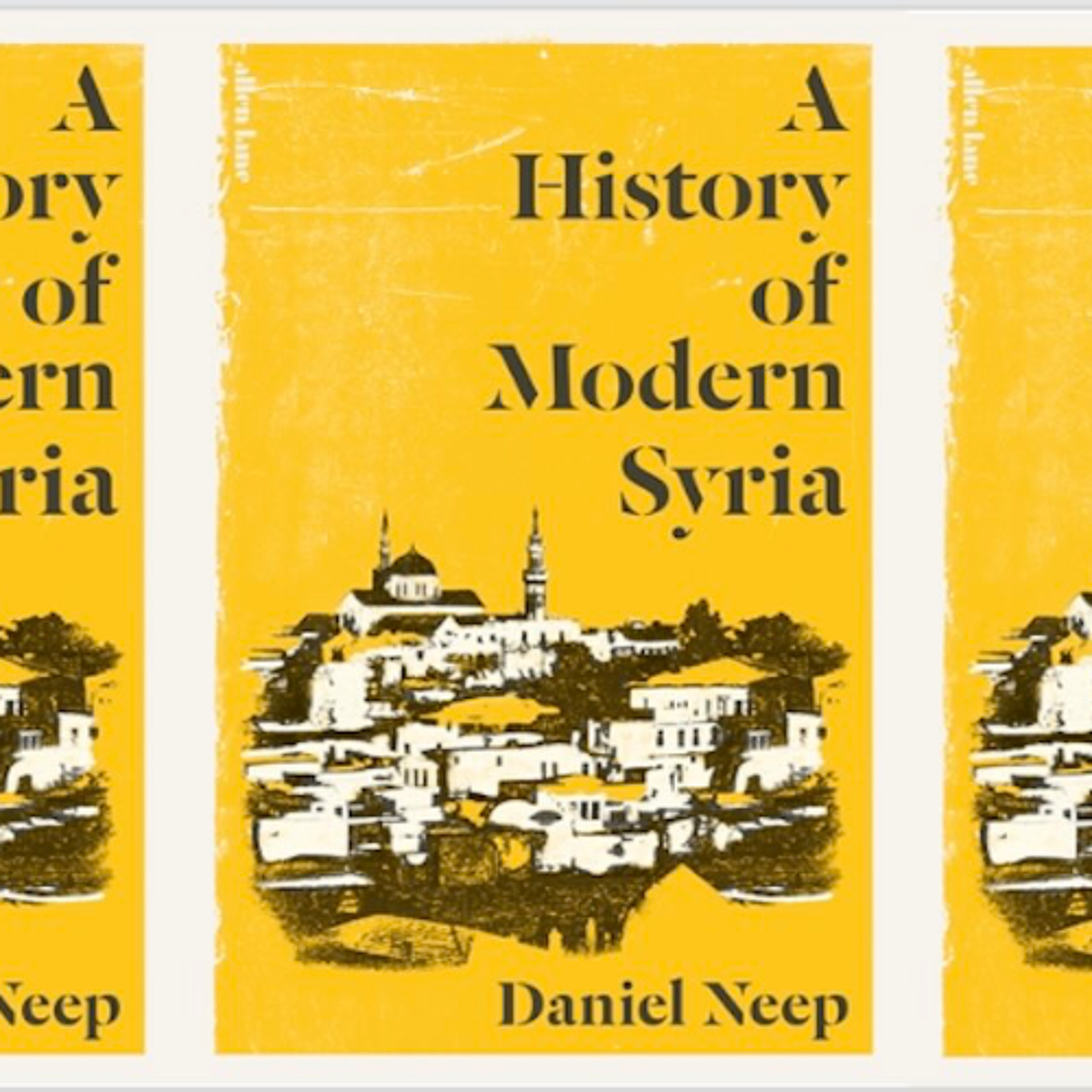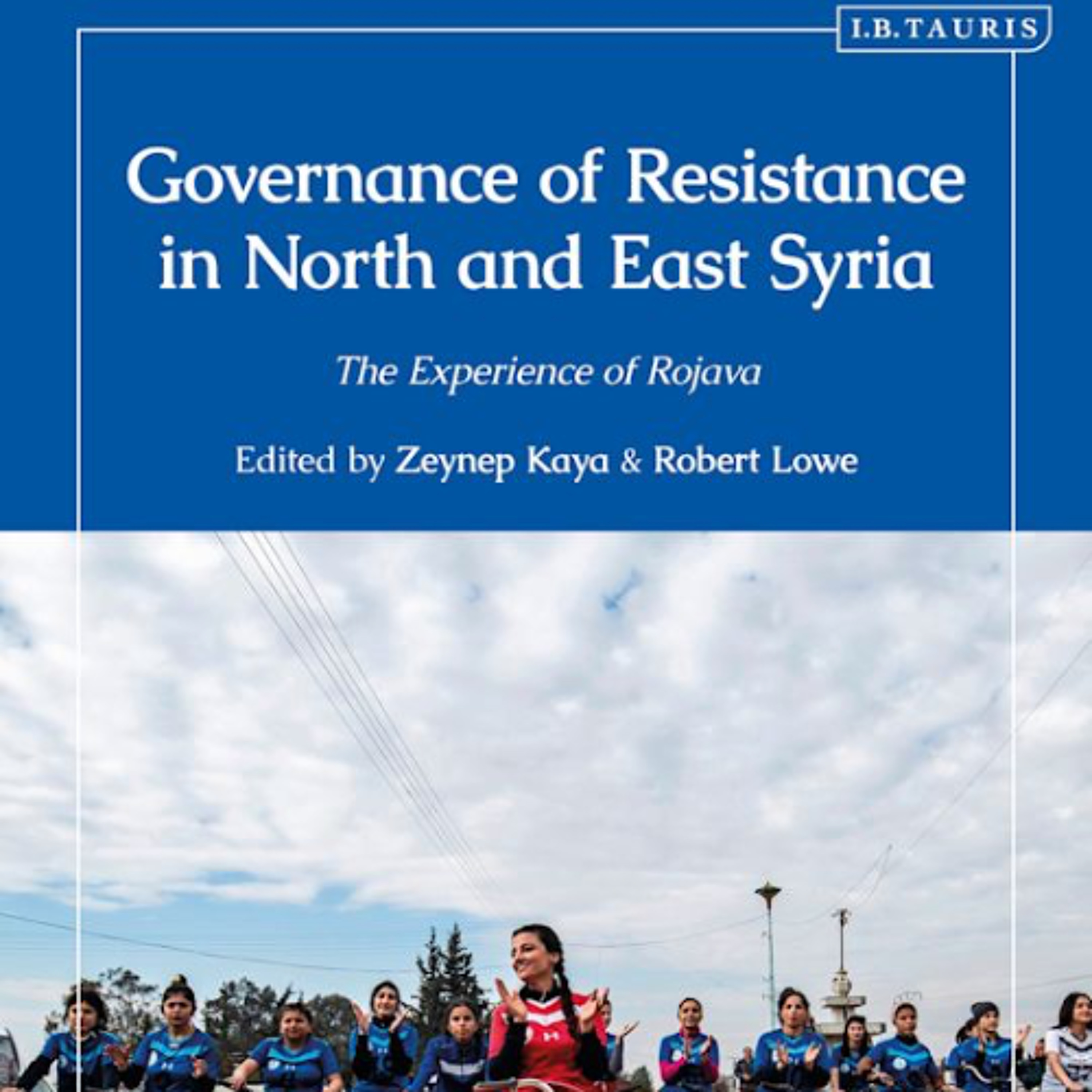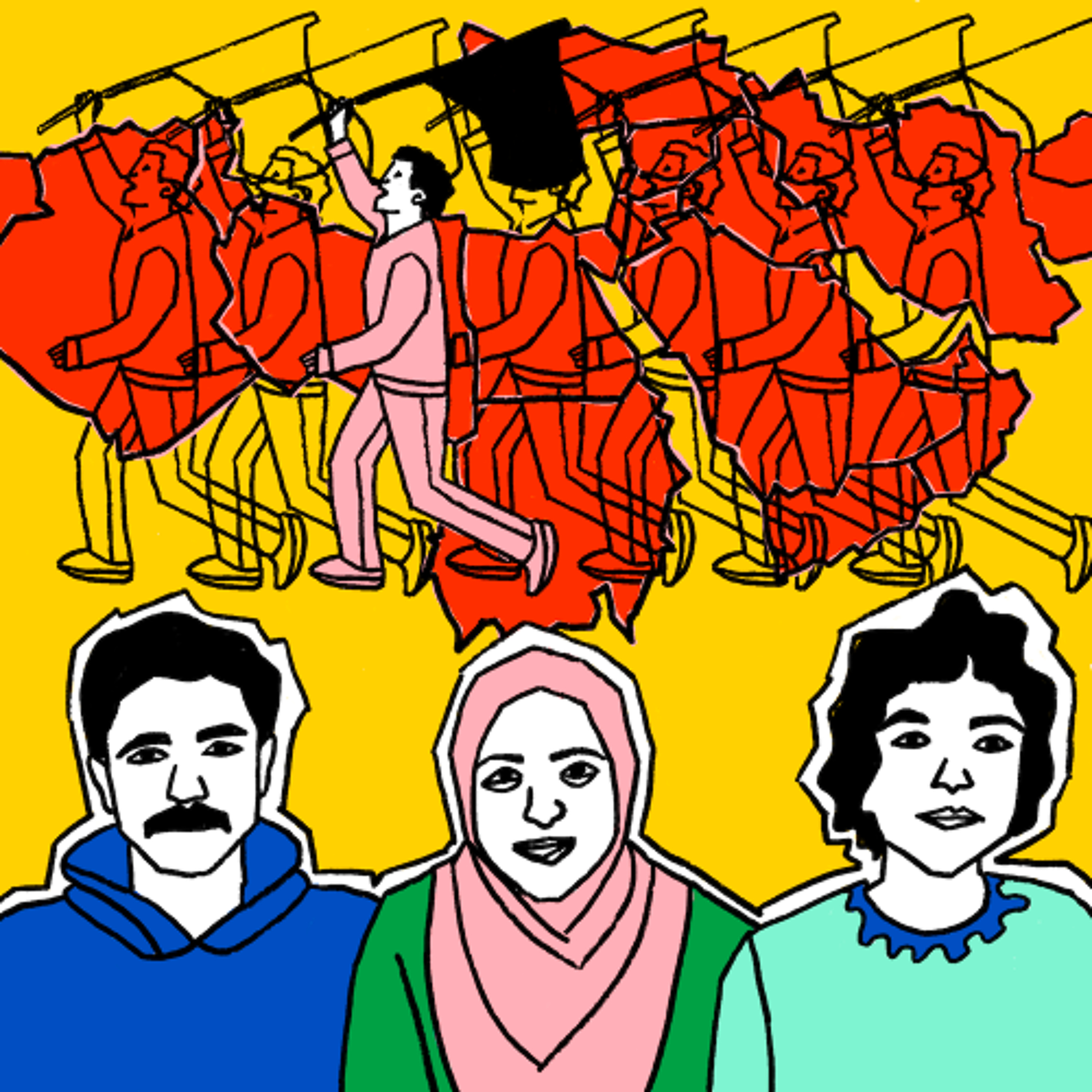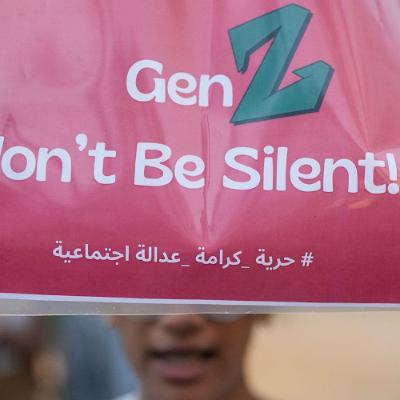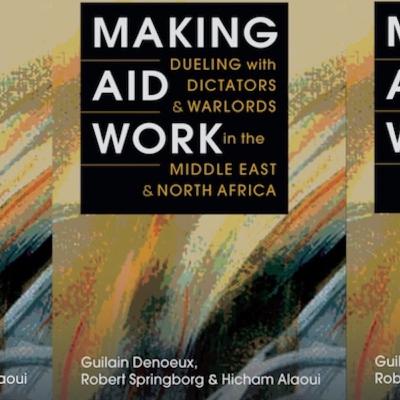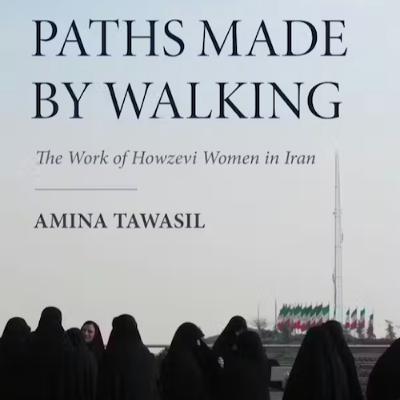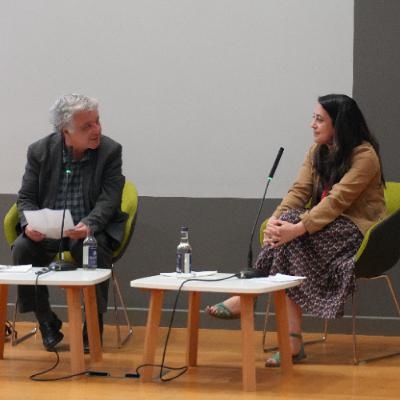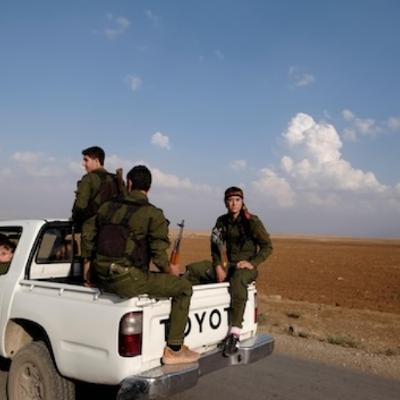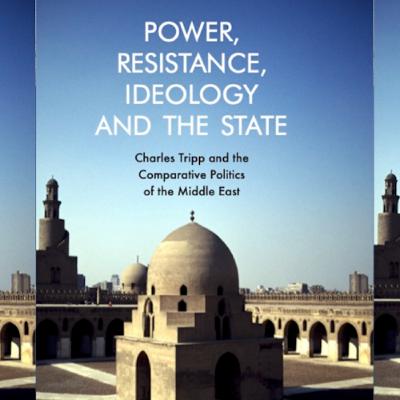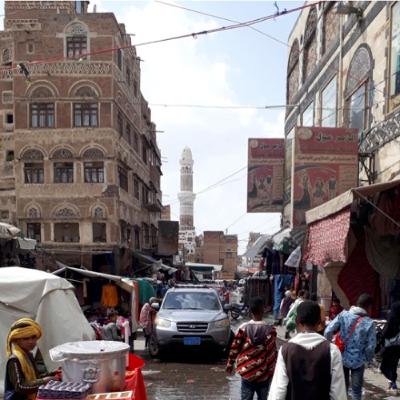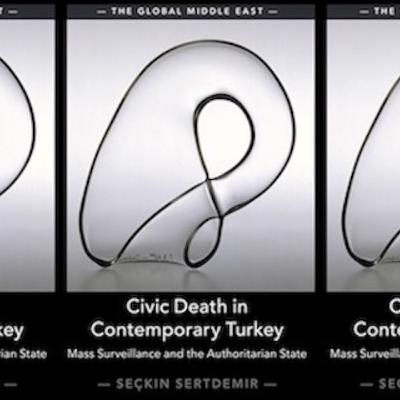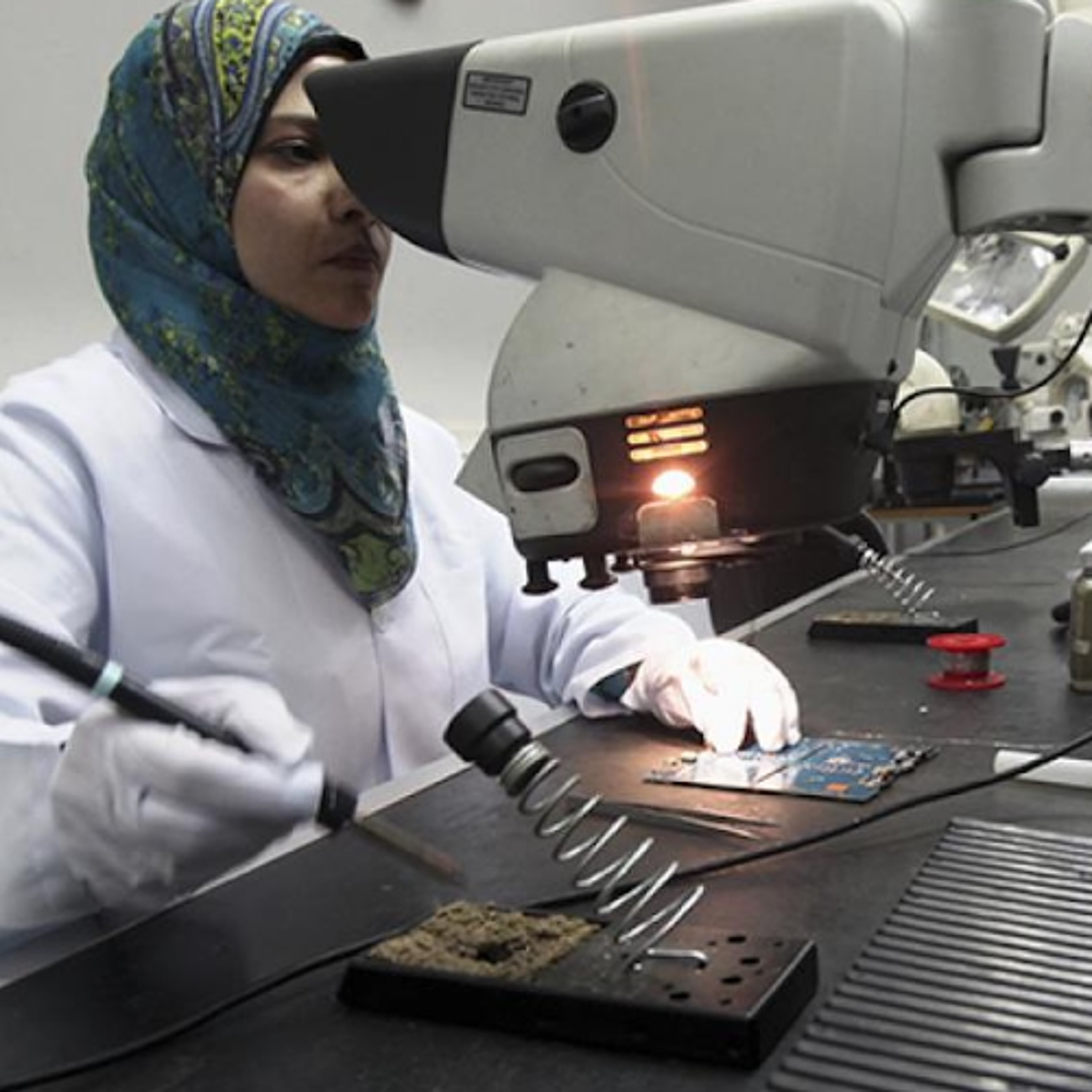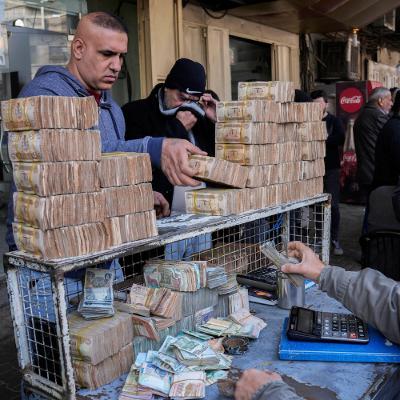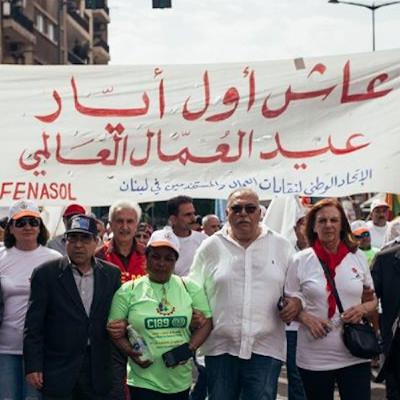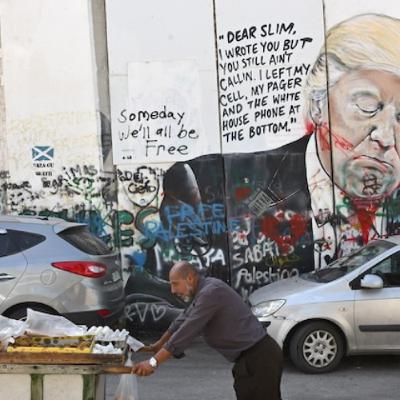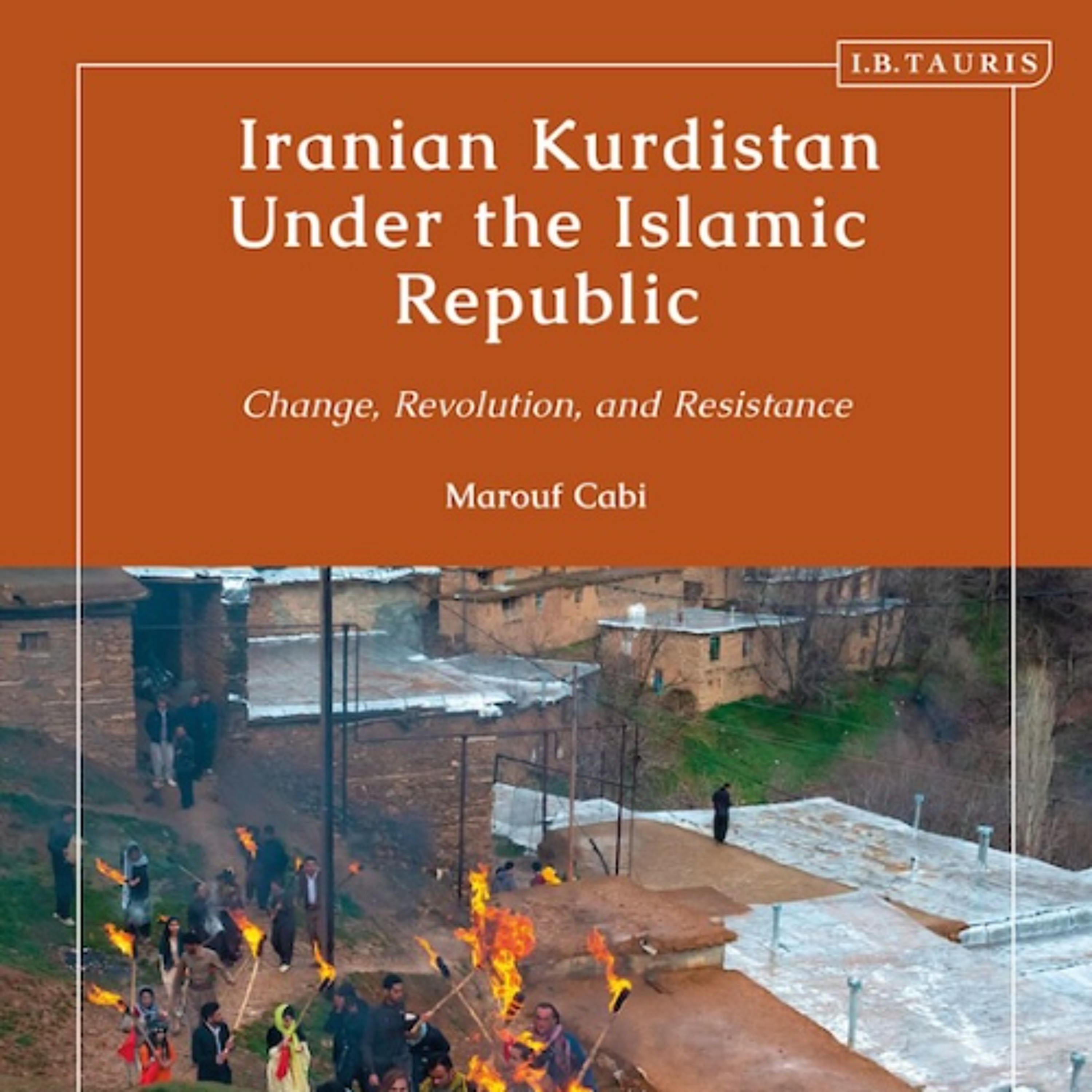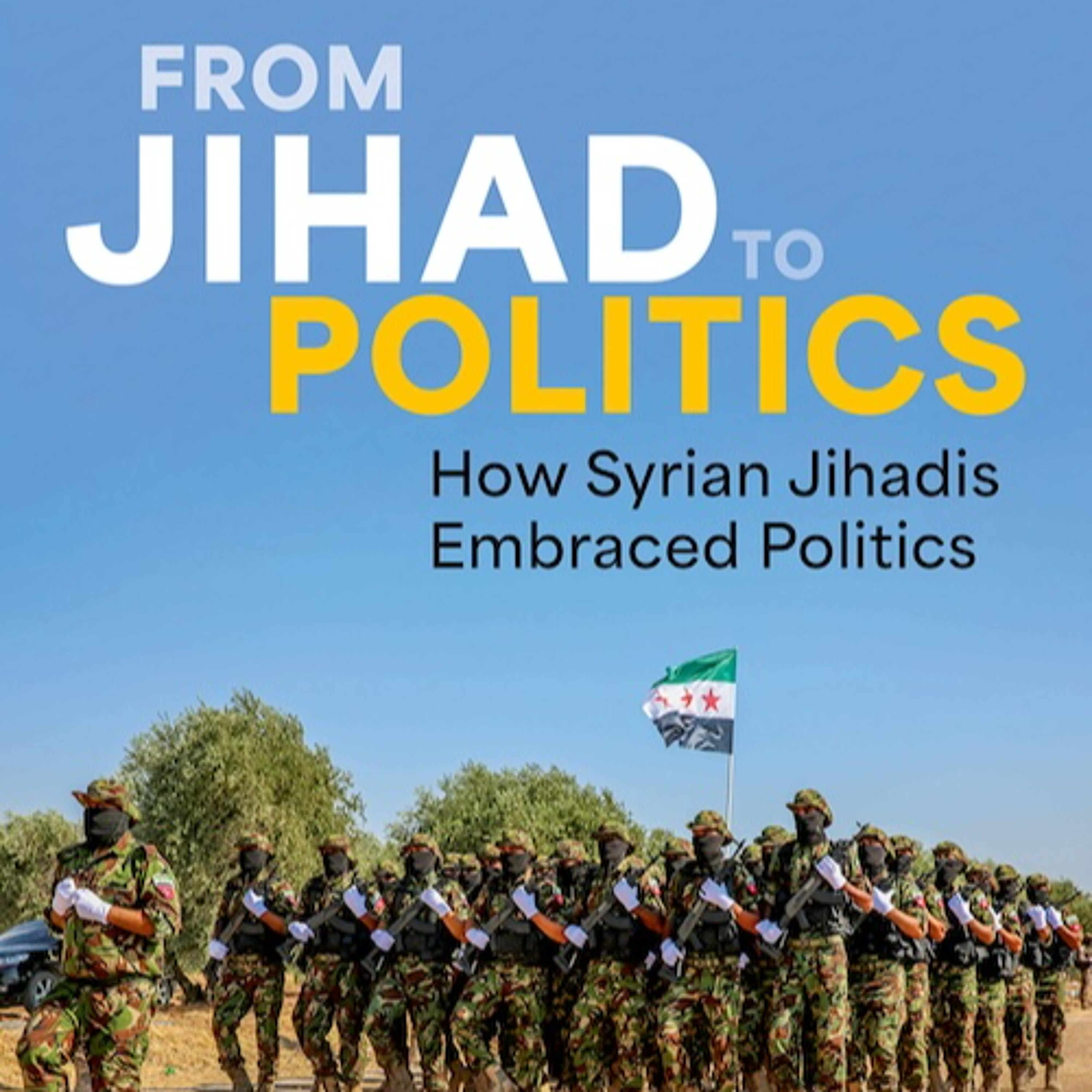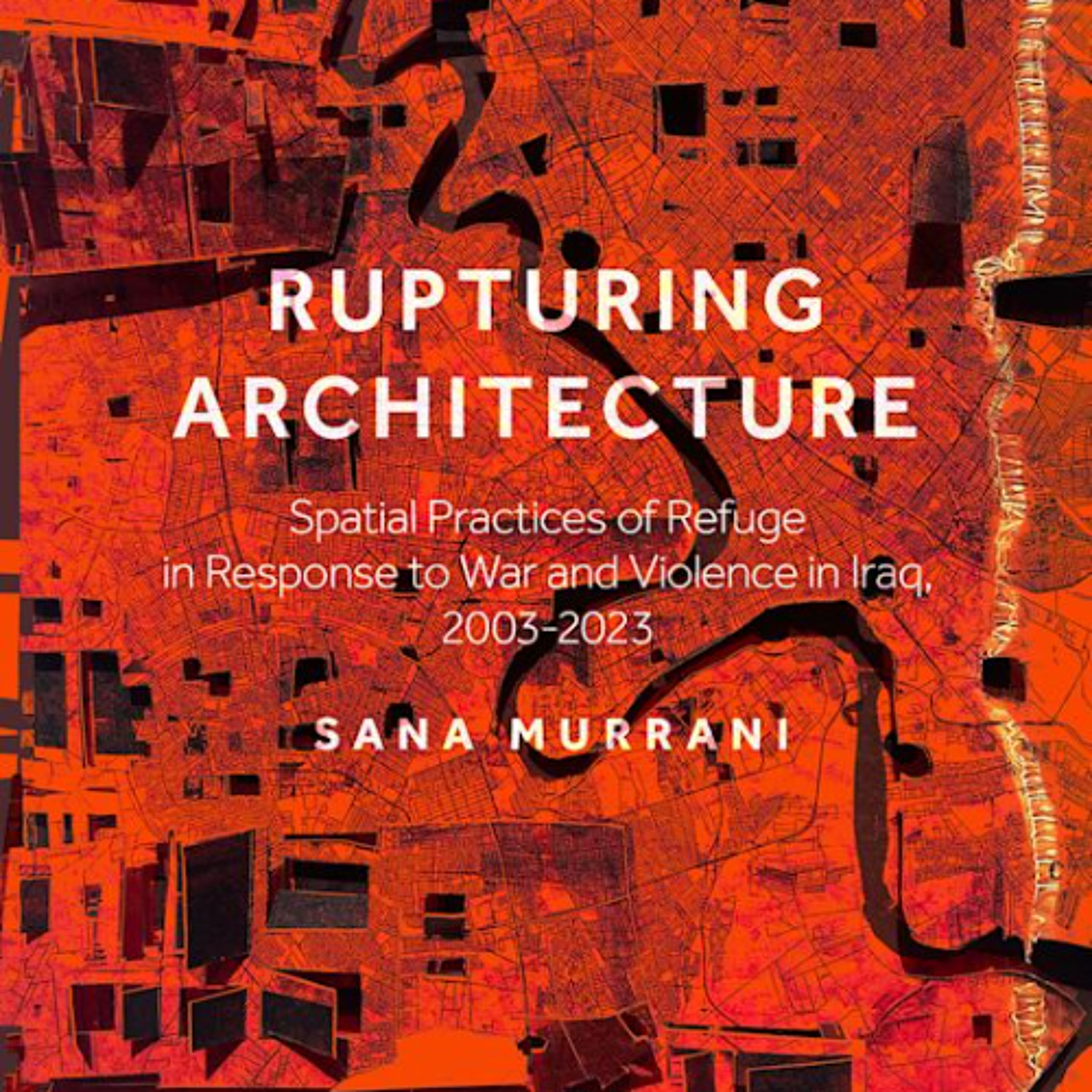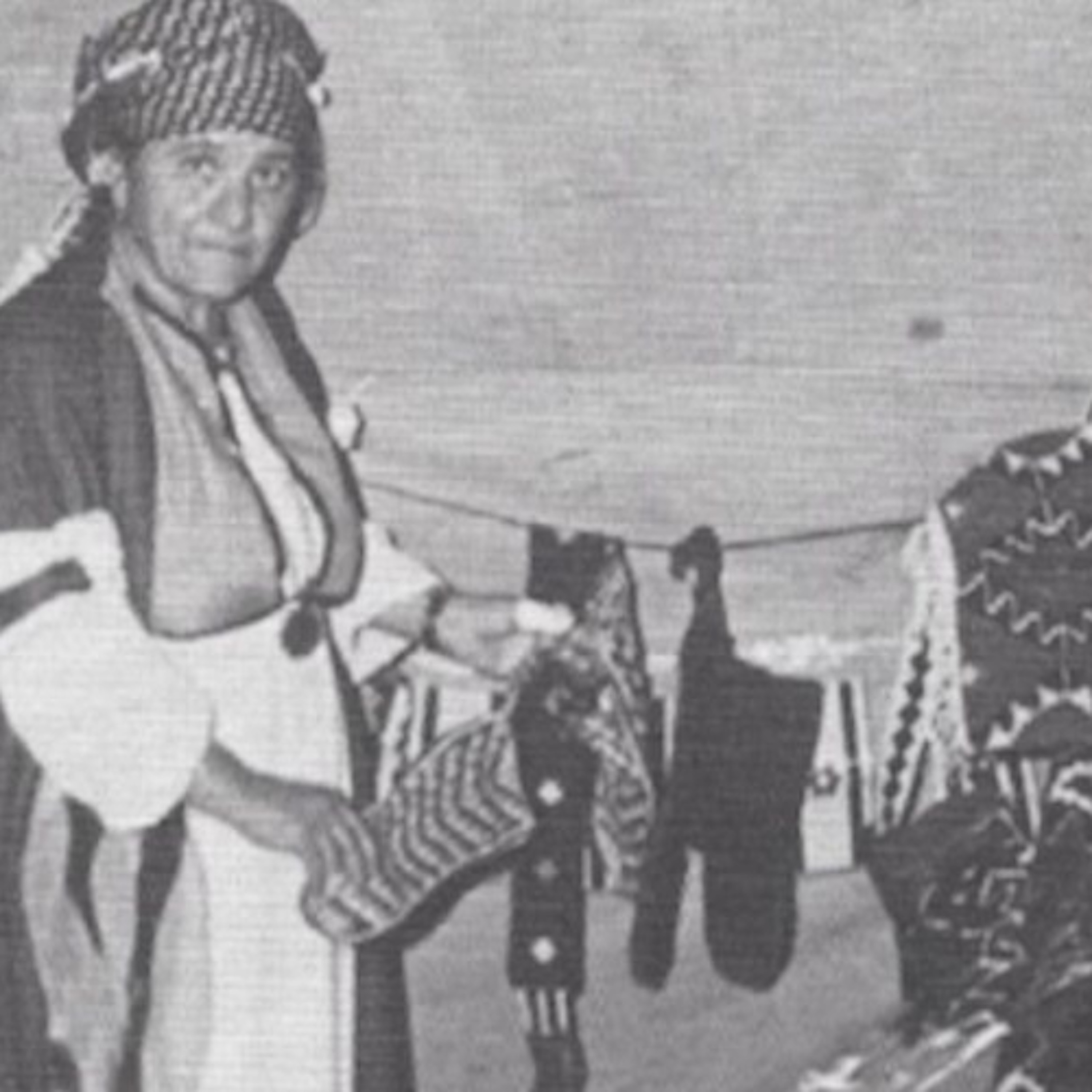Discover LSE Middle East Centre Podcasts
LSE Middle East Centre Podcasts

LSE Middle East Centre Podcasts
Author: LSE Middle East Centre
Subscribed: 1,540Played: 20,280Subscribe
Share
© All rights reserved
Description
Welcome to the LSE Middle East Centre's podcast feed.
The MEC builds on LSE's long engagement with the Middle East and North Africa and provides a central hub for the wide range of research on the region carried out at LSE.
Follow us and keep up to date with our latest event podcasts and interviews!
The MEC builds on LSE's long engagement with the Middle East and North Africa and provides a central hub for the wide range of research on the region carried out at LSE.
Follow us and keep up to date with our latest event podcasts and interviews!
325 Episodes
Reverse
Manar Alzraiy, a Palestinian education professional dedicated to resilience and equity in crisis-affected schools, brings together her colleagues from Gaza to talk about education since October 7 2023, how Israel's war on Gaza and forced displacement has destroyed the education sector, and what is needed to rebuild it both physically and intellectually. These interviews took place in the summer of 2025.
Manar Alzraiy is an Atlantic Fellow for Social and Economic Equity and an education professional from Gaza, where she worked for ten years with UNRWA. At LSE, Manar conducted research on embedded inequalities in how United Nations humanitarian principles are applied in UN schools in Palestine. She is currently a fellow at the Harvard Graduate School of Education.
Dr Alaa Ali Aladini is an Assistant Professor of Curriculum and Instruction (TEFL). He has over 23 years of experience with UNRWA-Gaza, serving as an English teacher, educational supervisor and education specialist. Dr Aladini brings extensive expertise in language education, teacher training and inclusive education.
Asma Mustafa is an English language teacher who received the title ‘Global Teacher of the Year 2020’ from the AKS Education Award in India, and the title ‘Palestine’s Innovative Teacher of the Year 2022’ for her applied eTwinning approach in English language teaching.
Dr Mohammed Awad Shbeir holds a PhD in Educational Administration. He is also an education supervisor as well as an academic and educational researcher specialising in education and social issues.
To find out more about Manar's work: https://afsee.atlanticfellows.lse.ac.uk/en-gb/fellows/2023/manar-alzraiy.
Modern Syria has seen violence, repression, and autocracy, suffering through tragedy after tragedy over the past century. Yet the history of Syria is not just a tale of dictators and generals. From the 1800s to the 2020s, the Syrian people have engaged in a passionate struggle for justice, equality, and a better future. Whether fighting for national independence from French colonial rule, battling local landowning elites to share the country's wealth, or rising up against the Assad regime, the Syrian people have fiercely clung to their right to live with respect and dignity. Theirs is a story of protest and perseverance in the long fight to reshape the political destiny of their nation. Daniel Neep’s new book, A History of Modern Syria, offers a gripping narrative of how Syrians have navigated the events of the last two centuries. Never losing sight of the fates of ordinary people, it provides a comprehensive account of how a nation born in conflict sustained a rich, complex, and diverse society that after the fall of Assad will chart a new path into the uncertain future.
Daniel Neep is Non-Resident Fellow at the Crown Center for Middle East Studies, Brandeis University, and Senior Editor at Arab Center Washington DC. He has taught Middle East politics at George Washington University, Georgetown University, and the University of Exeter. He was previously Research Director (Syria) at the Council for British Research in the Levant and spent several years living in Syria and Jordan. He is also the author of Occupying Syria under the French Mandate: Insurgency, Space, and State Formation (Cambridge University Press, 2012) and articles in journals including International Affairs, Journal of Democracy, New Political Economy, and the Journal of Historical Sociology.
Meet our discussant and chair
Charles Tripp FBA is Professor Emeritus of Politics at the School of Oriental and African Studies, University of London. His research interests include the nature of autocracy, state and resistance in the Middle East, the politics of Islamic identities, and the role of art in the constitution of the political. He is currently working on a project on the politics of memory in Tunisia.
Jasmine Gani is Assistant Professor in International Relations Theory at LSE. She specialises in anti-colonial theory and history, and the politics of empire, race and knowledge production. She is author of 'The Role of Ideology in Syria-US Relations: Conflict and Cooperation' (2014), and co-editor of 'Actors and Dynamics in the Syrian Conflict's Middle Phase' (2022).
'Governance of Resistance in North and East Syria' examines the momentous development of the Kurdish-led autonomous administration since 2012. The creation of this unprecedented, ideologically radical entity is of immense significance in Kurdish, Syrian and Middle Eastern history and for discourses of nationalism and identity. This book presents new research from the expanding scholarship to interrogate Rojava as a political and social idea and explain the resistance narrative that underpins the ideology and governance structures. The contributions examine key aspects of the condition of the autonomous government, its successes, failures and impact, including the theory and nature of the political structures, their application in Arab areas, identity, education, gender and foreign relations. The findings demonstrate that North and East Syria has been revolutionary, that resistance there is resilient, and that there are constant and dynamic tensions between ideology and pragmatism in the evolution of this remarkable political and social project. The speakers at this event will also discuss fast-moving developments in north and east Syria.
Meet our speakers
Stephen Knight is a doctoral student at the Centre for Socio-Legal Studies at the University of Oxford. His ethnographic research explores the application of international humanitarian law by the Democratic Autonomous Administration of North and East Syria. Outside of the field of law Stephen's research also looks at the interaction between mythology and political movements. Stephen also practises as a barrister, specialising in the interactions between criminal law, protest law, immigration law, and public law. He has forthcoming works in the fields of trafficking law and Kurdish mythology.
Thomas McGee is an interdisciplinary researcher working at the intersection of legal and social studies of the Middle East, with particular emphasis on Kurdish dynamics in the Syrian context. He is a Max Weber fellow at the European University Institute in Florence, and completed his PhD on “Syria’s Changing Statelessness Landscape: 2011 as Critical Juncture” at Melbourne Law School’s Peter McMullin Centre on Statelessness. Thomas has been a Visiting Fellow at the University of Oxford’s Refugee Studies Centre and Universitat Pompeu Fabra in Barcelona. He has previously published on a wide variety of topics in the Journal of Ethnic and Migration Studies, International Migration Review, Middle East Journal of Culture and Communication, Genocide Studies International and the Kurdish Studies journal. Currently, Thomas is developing his PhD for publication as a monograph.
Dastan Jasim is a Research Engineer at the Dauphine University in Paris and an Associate Fellow at the German Institute for Global and Area Studies. Her research focuses on political culture, democratization and security studies.
William Smith is an analyst and researcher whose work has focused on Syria since 2013. He was worked as an independent adviser on a number of U.K.-government and EU funded peacebuilding and stabilisation projects, including as the lead for a ‘Track 2’ initiative in northeastern Syria in 2021-22 that brought representatives of the SDF and Autonomous Administration together in dialogue with local civil society. He currently provides conflict analysis for a Syria humanitarian project.
In this first episode of season 4, Hamidreza Vasheghanifarahani speaks with Azadeh Sobout and Rindala about how transnational solidarity networks can strengthen efforts towards social change. While both Azadeh and Rindala focus their discussion on Syria and the 2011 Revolution, the conversation explores broader approaches and challenges to political organising and revolutionary politics that can be applied globally.
Hamidreza Vasheghanifarahani an Iranian researcher, activist and an Atlantic Fellow for Social and Economic Equity. Currently, he works at the LSE International Inequalities Institute as a researcher. He has worked with and for civil society organisations and communities as a researcher, project manager and trainer, with a focus on civil society and community mobilisation, children’s rights, and disability.
Azadeh Sobout is a Post-Doctoral Research Fellow at Queen’s University Belfast. She is an Iranian activist, writer, and educator rooted in refugee justice, indigenous solidarity, Palestinian liberation, anti-racist, feminist, anti-imperialist, and anti-capitalist movements for over a decade.
Rindala is a Syrian member of the People’s Want transnational network and a co-founder of the cooperative space Darna in Montreuil, France.
To learn more about the Atlantic Fellows for Social and Economic Equity: https://afsee.atlanticfellows.lse.ac.uk/
The Peoples Want: https://thepeopleswant.org/en/about_us
Hamidreza Vasheghanifarahani: https://afsee.atlanticfellows.lse.ac.uk/fellows/2022/hamidreza-vasheghanifarahani
In September, a wave of protests emerged in Morocco led by the country's youth, known as GenZ 212. Since September, 3 people have been killed and 400 arrested according to Amnesty International. Triggered by the deaths of women in an Agadir hospital, the protest movement’s demands come against the background of widespread unemployment and a lack of funding in health and education sectors.
With King Mohammed VI's latest speech announcing budgetary increases and promises of reform, will this be enough to meet the movement’s demands, and does the movement have enough momentum to continue? This panel of experts will take a look at the current protests, how they have been organised and their capacity to gather widespread support. Panellists will also provide broader political and historical analysis on the country, analysing how capacity for reform can be understood in light of the Kingdom's governance systems and political institutions.
Meet our speakers and chair:
Miriyam Aouragh is Professor of Digital Anthropology at the University of Westminster with a specific focus on West Asia and North Africa. She studies the contradictions of capitalism shape the modes and meanings of resistance in the era of revolution and digital transformations. Her analyses is grounded in the complex revolutionary dynamics in the Arab world. In what she calls "techno-social politics" she studies a political temporality marked by revolution and counter-revolution. She wrote about the paradoxical context of online-revolution and cyber-imperialism. Throughout her academic projects she conducts extended fieldwork (Palestine, Jordan, Lebanon and Morocco), in order to relate participant observation and interviews to media analyses. Miriyam is author of Palestine Online (IB Tauris 2011); (with Hamza Hamouchene) The Arab Spring a decade on (TNI 2022); Mediating the Makhzan about the (r)evolutionary dynamics in Morocco (forthcoming CUP) and (with Paula Chakravartty) Infrastructures of Empire (forthcoming).
Mohamed Daadaoui is professor and chair of Political Science, History, and Philosophy & Rhetoric at Oklahoma City University. He is the author of Moroccan Monarchy and the Islamist Challenge: Maintaining Makhzen Power and The Historical Dictionary of the Arab Uprisings. He is a specialist of North African Politics. Mohamed’s articles have appeared in Middle East Critique, The Journal of North African Studies and Middle Eastern Studies, The British Journal of Middle East Studies, the Journal of Middle East Law and Governance, the Hudson Institute, the Washington Post’s Monkey Cage, the Huffington Post, SADA of the Carnegie Endowment for International Peace, the Middle East Institute, Jadaliyya and Muftah. Mohamed has provided commentary to local and international media outlets such as: C-Span, al-Jazeera English, the BBC, El Pais, and The Irish Times.
Michael J. Willis is King Mohammed VI Fellow in Moroccan and Mediterranean Studies. His research interests focus on the politics, modern history and international relations of the central Maghreb states (Algeria, Tunisia and Morocco). Before joining St Antony’s in 2004, he taught politics at Al Akhawayn University in Ifrane, Morocco for seven years. He is the author of Algeria: Politics and Society from the Dark Decade to the Hirak (Hurst, 2022); Politics and Power in the Maghreb: Algeria, Tunisia and Morocco from Independence to the Arab Spring (Hurst and Oxford University Press, 2012) and The Islamist Challenge in Algeria: A Political History (Ithaca and New York University Press, 1997) and co-editor of Civil Resistance in the Arab Spring: Triumphs and Disasters (Oxford University Press, 2015).
Richard Barltrop is a Visiting Senior Fellow at the LSE Middle East Centre. His research is on contemporary international approaches to peacemaking, and why peace processes fail or succeed, with a particular focus on Yemen, Sudan and South Sudan, and considering Libya, Syria and other examples.
With hardening authoritarianism and state capture by militias exacerbating the challenges faced by providers of development and political aid across the Middle East and North Africa, how can aid be made more effective? Can donors overcome the limitations of their outdated assistance playbooks? Analysing the fraught relationships between Western aid providers and MENA recipients, the authors of Making Aid Work suggest innovative, practical approaches for overcoming the chronic limitations—and disappointing results—of assistance aimed at encouraging economic development and political reform in the region.
Meet our speakers and chair
Guilain Denoeux is professor of government at Colby College. His areas of expertise include: Middle Eastern and North African politics, terrorism, insurgency and counter-extremism programming and democracy-building strategies and activities.
Robert Springborg is nonresident research fellow of the Italian Institute of International Affairs and adjunct professor in the School of International Studies at Simon Fraser University.
Greg Shapland is a Research Fellow at the LSE Middle East Centre and Principal Investigator and UKRI FCDO Senior Research Fellow on the project, ‘The Political Economy of Water in the MENA Region: A Cross-Regional Assessment’.
This event was the launch of 'Paths Made by Walking: The Work of Howzevi Women in Iran' by Amina Tawasil.
This groundbreaking ethnography on Iranian howzevi (seminarian) women reveals how ideologies of womanhood, institutions, and Islamic practices have played a pivotal role in religiously conservative women's mobility in the Middle East.
This event was co-organised with the Department of Anthropology at LSE.
Meet the speaker and chair:
Amina Tawasil is an anthropologist serving as a Lecturer in the Programs in Anthropology at Columbia University's Teachers College since 2017. She has published several articles from her fieldwork in the Islamic Republic of Iran on seminarian women, and has recently published a book entitled, 'Paths Made by Walking: The Work of Howzevi Women in Iran' through Indiana University Press. Previously, she taught at the International Studies Institute, University of New Mexico after serving as the inaugural Andrew W. Mellon postdoctoral fellow in the Middle East and North African Studies program, with courtesy appointment in the Department of Anthropology at Northwestern University. She is particularly interested in ethnographic and theoretical framings of anonymity, slow labor, time, urban situations, and performance. She is currently completing her fourth year of ethnographic fieldwork among graffiti writers in New York City, Philadelphia and urban New Jersey, which she has published a chapter on in the 'Ethnography of Reading at Thirty' edited volume.
Yazan Doughan is Assistant Professor in the Department of Anthropology at LSE. Yazan is an anthropologist whose work straddles the linguistic and socio-cultural branches of the discipline, with close engagements with social and legal theory, conceptual and social history, and moral philosophy. His work blends ethnography, genealogy, and history to shed light on the question of social justice in contemporary postcolonial contexts, with Jordan as a primary field site.
This keynote lecture delivered by Professor Hamit Bozarslan took place during the Kurdish Studies Conference organised by the LSE Middle East Centre and the Department of Politics and International Relations at the University of Sheffield.
An expert in the Middle East, Turkey and the Kurdish question, Hamit Bozarslan has been director of studies at the École des Hautes Études en Sciences Sociales (EHESS) in Paris since 2006. A doctor of history and political science, he now focuses his research on the historical and political sociology of the Middle East, the revolutionary fact and violence present in the Arab world, and the formation of anti-democracies in the 21st century. Bozarslan is a regular contributor to French media such as Le Monde and is the author of a long list of works, including the essay 'Crisis, violence et dé-civilization' (2019), 'Révolution et état de violence: Middle East 2011-2015' (2015), 'History of Turkey: From the Empire to the Present' (2013), 'A History of Violence in the Middle East: From the End of the Ottoman Empire to al-Qaeda' (2008), 'From Political Struggle to Self-Sacrifice: Violence in the Middle East' (2004) & 'The Kurdish Question: States and Minorities in the Middle East' (1997).
This event was chaired by Dr Zeynep Kaya. Zeynep is a Lecturer in International Relations at the University of Sheffield and a Visiting Fellow at the LSE Middle East Centre. Her main research areas involve borderlands, territoriality, conflict, peace, political legitimacy and gender in the Middle East. She is author of 'Mapping Kurdistan: Territory, Self-Determination and Nationalism' with Cambridge University Press. Zeynpe is co-convenor of the Kurdish Studies Series at the LSE Middle East Centre.
This talk delivered by Professor René Provost explored important lessons on the promises and limits of non-state justice in conflict zones, specifically looking at the Kurdish-dominated Democratic Autonomous Administration of North East Syria.
Zones of armed conflict are spaces of disorder, which state and non-state belligerents alike aim to curtail through law. Starting in 2014, the Kurdish-dominated Democratic Autonomous Administration of North East Syria established its own courts and enacted its own laws, in civil as well as criminal matters. For a decade, this unrecognised system of administration of justice has struggled to bring social order to this war-afflicted territory.
Meet our speaker and chair
René Provost Ad.E. FRSC is the James McGill Professor of Justice Beyond the State at the Faculty of Law of McGill University. He joined the Faculty of Law of McGill University in 1994, where he was Associate Dean (Academic) from 2001 to 2003 and the founding Director of the McGill Centre for Human Rights and Legal Pluralism from 2005 to 2010. Professor Provost teaches Public International Law, International Human Rights Law, International Humanitarian Law, International Environmental Law, Legal Anthropology, and various courses in legal theory. His latest book is 'Rebel Courts – The Administration of Justice by Armed Insurgents' (Oxford University Press 2021), winner of the 2022 ICON-S Prize for Best Book in Public Law and the 2023 American Society of International Law Certificate of Merit for Creative Scholarship.
Robert Lowe is Deputy Director of the LSE Middle East Centre and Co-Convenor of the Kurdish Studies Series at the LSE Middle East Centre. His main research interest is Kurdish politics, with particular focus on the Kurdish movements in Syria. He is Co-Editor of the Kurdish Studies Series, published by I.B. Tauris.
This event celebrated the work of Professor Charles Tripp through a new edited volume by Toby Dodge, Daniel Neep and Ali Ansari.
The work of Charles Tripp – professor at SOAS University of London for over three decades – has shaped a distinct approach to the study of Middle East politics: an analytical sensibility that is empirically rich, theoretically insightful, and historically sensitive. This edited volume brings together contributions from ten political scientists and historians from across Europe, the United States, and the Middle East, each of whom takes Tripp’s work as the intellectual point of departure for studying politics in the region.
Speakers:
Ali M. Ansari is Professor of Iranian History and founding Director of the Institute for Iranian Studies at the University of St Andrews.
Eberhard Kienle is Directeur de recherche (Research Professor) at the Centre national de la recherche scientifique (CNRS) in Paris and teaches politics at SciencesPo Paris.
Daniel Neep is a political scientist who works on conflict and state-building in the Middle East, with a focus on Syria.
Evaleila Pesaran is Senior College Lecturer in Politics and International Relations at Murray Edwards College, University of Cambridge.
What does Yemen’s political, economic and social history and experience tell us about what is realistic for the coming decade and beyond? This keynote lecture delivered by writer and researcher Helen Lackner discussed the main socio-political transformations since the 1960s, and addressed the most relevant features for the country's future. Lackner's presentation drew on her personal experience in different sectors throughout the country.
Meet our speaker and chair
Helen Lackner has been involved with Yemen for more than half a century, working in all three Yemeni states which have existed since the 1960s. She has worked as a consultant in social aspects of rural development in over thirty countries in the Middle East, Africa, Asia and Europe. Her two most recent books on Yemen are 'Yemen in Crisis, Devastating Conflict, Fragile Hope' (Saqi, 2023) and 'Yemen: Poverty and Conflict' (Routledge, 2023). Lackner was the Sir William Luce Fellow at Durham University in 2016, an associate researcher at SOAS from 2016 to 2022. She edited the Journal of the British-Yemeni Society for eight years and writes regularly for the Arab Digest and Orient XXI and has contributed longer academic papers to numerous books and other institutions.
Richard Barltrop is a Visiting Senior Fellow at the LSE Middle East Centre. His research is on contemporary international approaches to peacemaking, and why peace processes fail or succeed, with a particular focus on Yemen, Sudan and South Sudan. He is the author of 'Darfur and the International Community: The Challenges of Conflict Resolution in Sudan' (IB Tauris/Bloomsbury, 2011/2015).
This event was the launch of Seçkin Sertdemir's latest book 'Civic Death in Contemporary Turkey: Mass Surveillance and the Authoritarian State' published by Cambridge University Press.
What does it mean for a government to declare its citizens 'dead' while they still live? Following the failed 2016 coup, the Turkish AKP government implemented sweeping powers against some 152,000 of its citizens. These Kanun hükmünde kararnameli ('emergency decreed') were dismissed from their positions and banned for life from public service. With their citizenship rights revoked, Seçkin Sertdemir argues these individuals were rendered into a state of 'civic death'. This study considers how these authoritarian securitisation methods took shape, shedding light on the lived experiences of targeted people.
Meet the speakers and chair
Seçkin Sertdemir is a Visiting Fellow in the European Institute at the London School of Economics and Political Science. Her research focuses on ideas of democracy, and current problems of political philosophy such as civil disobedience and political rights.
Zerrin Özlem Biner is a Senior Lecturer in Anthropology at SOAS working at the intersection of political and legal anthropology. She is author of 'Dispossession: Violence and Precarious Co-existence in Southeast Turkey' (University of Pennsylvania Press, 2020). With Özge Biner, she co-edited a special section on the 'Politics of Waiting: Ethnographies of Sovereignty, Temporality and Subjectivity in the Margins of the Turkish State' in the Journal of Social Anthropology.
Katerina Dalacoura is Associate Professor in International Relations at the London School of Economics and Political Science. Dalacoura’s work has centered on the intersection of Islamism and international human rights norms. She has worked on human rights, democracy and democracy promotion, in the Middle East, particularly in the context of Western policies in the region.
This event, co-organised with the Department of International Development at LSE, was a discussion with Professor Naila Kabeer and Professor Ragui Assaad based on their co-authored report 'Women's Access to Market Opportunities in South Asia and the Middle East and North Africa: Barriers, Opportunities and Policy Challenges'.
Despite this paper being written in 2019, the situation of women's access to market opportunities in MENA and South Asia remains a challenge. Kabeer and Assaad will reflect on their findings and discuss the puzzles and paradoxes of women's employment in these regions, which have the lowest rates of women's labour force participation in the world. The conversation will also explore how to unlock the potential of women in these communities.
Meet our speakers and chair
Naila Kabeer is Emeritus Professor of Gender and Development in the Department of International Development at LSE. Naila is also a Faculty Associate at LSE’s International Inequalities Institute and on the governing board of the Atlantic Fellowship for Social and Economic Equity. Her most recent projects were supported by ERSC-DIFD Funded Research on 'Poverty Alleviation: Gender and Labour Market dynamics in Bangladesh and West Bengal'.
Ragui Assaad is the Freeman Chair in International Economic Policy at the Hubert H. Humphrey School of Public Affairs, University of Minnesota. He researches education, labor policy, and labor market analysis in developing countries with a focus on the Middle East and North Africa. His current work focuses on inequality of opportunity in education, labor markets, transitions from school-to-work, employment and unemployment dynamics, family formation, informality, labor market responses to economic shocks, international migration, including the effects of forced migration.
This event disseminated the findings of a series of papers produced for the LSE Middle East Centre by Ahmed Tabaqchali exploring the economic and financial interactions of the Iraqi economy with the outside world, particularly the use of the dollar in relation to Iran and the US.
While the US’ Iraq policy is still fluid, there have been signs that America’s ‘maximum pressure campaign’ towards Iran will have spillover effects in Iraq, with the Trump administration viewing policy towards Iraq solely through the lens of a perceived threat of Iranian dominance in the country. Iran’s economic footprint in Iraq, both perceived and real, will be an issue for Iraq and its relationship with the US and the West.
Meet the speaker:
Ahmed Tabaqchali is a Visiting Fellow at the LSE Middle East Centre. Ahmed is a capital markets professional with over 25 years’ experience in US and MENA markets. He is the Chief Strategist of the AFC Iraq Fund. Ahmed is a Senior Fellow at the Institute of Regional and International Studies (IRIS), and non-resident Senior Fellow with the Atlantic Council - Iraq Initiative. He is a board member of the Iraq Fund for Higher Education (IFHE)/Baghdad Business School (BBS).
Access the papers here: https://www.lse.ac.uk/middle-east-centre/publications/paper-series
This event was the launch of Dr Anne Kirstine Rønn's latest paper as part of the LSE Middle East Centre Paper Series on 'The Struggles of Labour Mobilisation in Lebanon and Iraq'.
Despite facing significant challenges, including elite control and repression, labour movements in both Lebanon and Iraq have sought to assert their independence and challenge the status quo. This paper explores the main types of labour organisations in both countries – trade unions and professional syndicates – and the distinct structural and strategic obstacles they face.
The paper discusses the internal debates within these organisations, where the tension between idealism and pragmatic goals often influences their strategies. By drawing on interviews with labour activists and secondary sources, the paper reflects on the potential for strengthening these movements and explores the trade-offs between formal and informal labour organising. It concludes by calling for further research to identify the conditions under which labour mobilisation can be effective in similar political contexts.
Read the paper here: https://eprints.lse.ac.uk/127301/3/Struggles_of_Labour_Mobilisation.pdf
Meet our speakers and chair
Anne Kirstine Rønn is a Visiting Fellow at the LSE Middle East Centre. Her research explores opposition movements in ethno-religiously divided societies with a particular focus on Lebanon and Iraq.
Fuad Musallam is an Assistant Professor in Social Anthropology at the University of Birmingham. He focuses on activism, labour, the imagination, and how people come together to form community.
Razaw Salihy is the Iraq Researcher at Amnesty International. Since 2014, she has investigated and reported human rights violations and breaches of international humanitarian law in Iraq and the Kurdistan Region.
The return of Donald Trump to the White House in 2025 comes on the back of extreme violence in the Middle East, led by Israel and with great financial and political investment from the United States. What impact will Trump's second term have on the Middle East region, and what can we learn from his policies in his first term as President of the United States?
Between 2017- 2021 several major policies helped alter regional dynamics. From the Abraham Accords to the withdrawal from the 2015 Iran Nuclear Agreement; from a strengthening of ties with the Saudi monarchy to both airstrikes and calls for troop withdrawal in Syria.
What are the current legacies of those policies, and what can the Middle East expect from Trump’s second term? Panellists discussed these questions from the perspective of the region, the United States, and global politics with a view to the impact on both citizens and states.
Meet our speakers and chair
Gilbert Achcar is Emeritus Professor of Development Studies and International Relations at SOAS, University of London.
Tom Bateman is an international correspondent with BBC News currently covering the US State Department in Washington DC.
Sharri Plonski is a senior lecturer in international politics at Queen Mary University of London.
Mezna Qato is Director of the Margaret Anstee Centre for Global Studies at the University of Cambridge.
Jasmine Gani is Assistant Professor in International Relations Theory at LSE.
This event was the launch of Dr Marouf Cabi's latest book 'Iranian Kurdistan Under the Islamic Republic: Change, Revolution, and Resistance' published by I.B. Tauris.
Cabi presents a social, political, cultural, and socioeconomic history of Iranian Kurdistan since the 1979 Revolution. In this study, Marouf Cabi shines a spotlight on the modern history of Iranian Kurdistan – an area of Greater Kurdistan understudied in comparison to its regions in Syria and Iraq. The book provides a historical narrative and analysis of Kurdistan since the Revolution. It addresses key changes and events in detail, such as the participation of the Kurds in the Revolution, the reinvigoration of the Kurdish movements and the emergence of the women's movement, the armed struggle of the 1980s, socioeconomic and political change of the 1990s, and the emergence of civil society since 2000. Cabi draws on extensive primary sources, including oral history, various newspapers, journals, and books published during the period.
Meet our speakers and chair
Marouf Cabi is a Visiting Fellow at the LSE Middle East Centre. He received his PhD in History from the University of St Andrews, UK, and is a social and cultural historian of modern Iran. He is author of 'The Formation of Modern Kurdish Society in Iran: Modernity, Modernization, and Social Change 1921-1979' (2022).
Kamran Matin is a Reader in International Relations in the School of Global Studies at the University of Sussex where he teaches international history, international theory, and Middle East politics. He is the author of 'Recasting Iranian Modernity: International Relations and Social Change' (Routledge, 2013) and co-editor of 'Historical Sociology and World History: Uneven and Combined Development over the Longue Durée' (Rowman & Littlefield International, 2016).
Robert Lowe is Deputy Director of the LSE Middle East Centre and Co-editor of the Kurdish Studies Series, published by I.B. Tauris. His main research interest is Kurdish politics, with particular focus on the Kurdish movements in Syria.
This event was the launch of Jerome Drevon's latest book 'From Jihad to Politics: How Syrian Jihadis Embraced Politics' published by Oxford University Press.
Drevon's timely book offers an examination of the Syrian armed opposition, tracing the emergence of Jihadi groups in the conflict, their dominance, and their political transformation.
Meet our speakers
Jerome Drevon is Senior Analyst on Jihad and Modern Conflict at International Crisis Group (ICG) and Research Associate at the Graduate Institute of International and Development Studies (IHEID). Drevon has conducted extensive field research in conflict zones, including Syria. He has interviewed hundreds of Jihadi militants and foreign fighters--from their military, political, and religious leaders to their foot soldiers--to gain a deeper understanding of their changing political views in armed conflicts.
Haid Haid is a Syrian columnist and a consulting fellow with the Middle East and North Africa programme at Chatham House. Previously, Haid was a research fellow at the International Centre for the Study of Radicalisation (ICSR), King’s College London.
Raihan Ismail is the His Highness Sheikh Hamad Bin Khalifa Al-Thani Professor of Contemporary Islamic Studies at the University of Oxford. Raihan’s research interests include Political Islam, sectarianism, and the intertwining nature of religion and politics in the Middle East.
More about this event: https://www.lse.ac.uk/middle-east-centre/events/how-syrian-jihadis-embraced-politics/from-jihad-to-politics-how-syrian-jihadis-embraced-politics
This event was the launch of Dr Sana Murrani's latest book 'Rupturing Architecture: Spatial Practices of Refuge in Response to War and Violence in Iraq, 2003–2023' published by Bloomsbury.
Written by an Iraqi architect who has lived through the trauma of several wars, 10 years of UN-imposed sanctions, an invasion, and the subsequent violence, this book captures a broad spectrum of spatial responses to trauma and presents a fresh perspective on how ordinary Iraqis create refuge across the spaces of the home, the urban environment, and border geographies.
In the face of spatial wounding and the many injustices suffered by the Iraqi people, there has also been a wealth of refuge-making practices that showcase their creative and imaginative design and adaptability to change and trauma over time.
Rupturing Architecture employs methods such as creative deep mapping, memory work, storytelling, interviews, and case studies of architectural responses to the geographies of war and violence. At the core of the book are the lived and felt experiences of fifteen Iraqis from across Iraq, whose resilience underscores a broader narrative of spatial justice and feminist spatial practices.
Meet the speakers
Sana Murrani is an Associate Professor in Spatial Practice at the University of Plymouth and a Visiting Senior Fellow at the LSE Middle East Centre. Her research interests are rooted in spatial justice, drawing on her interdisciplinary background in architecture, urban design, and art and media. Her creative, place-based research practice maps built, destroyed, remembered, and reimagined trauma geographies of war, violence, and displacement.
Balsam Mustafa is a Lecturer in Translation Studies at Cardiff University. Her research cuts across translation studies, feminist studies, social movements, media and communication studies as well as politics and sociology, with a focus on the Middle East.
Michael Mason is Director of the Middle East Centre. At LSE, he is also Professor of Environmental Geography in the Department of Geography and Environment and an Associate of the Grantham Research Institute for Climate Change and the Environment. He is interested in ecological politics and governance as applied to questions of accountability, security and sovereignty.
Toby Dodge is a Professor in the Department of International Relations, LSE. He is also Kuwait Professor and Director of the Kuwait Programme, Middle East Centre. Toby's research concentrates on the evolution of the post-colonial state in the international system. The main focus of this work on the developing world is the state in the Middle East, specifically Iraq.
This event, as part of the LSE Middle East Centre's Kurdish Studies Series, discussed the online exhibition and research project 'Bridging Identities: The Cultural Odyssey of Kurdistani Jews' exploring the identity and heritage of Kurdistani Jews.
The stories in this research project shed light on this community's past through the lens of their memories and nostalgic ties to the homeland they left behind as they migrated to Israel/Palestine, and reveal if and how the markers of Kurdishness are transmitted to generations next.
Meet the speakers
Bahar Baser is Professor in Politics and International Relations at Durham University. Bahar is an expert in the area of diaspora studies, peacebuilding and conflict transformation, with a regional focus on the Middle East. She has conducted extensive research on diaspora engagement in peace processes, post-conflict reconstruction and state-building in the Global South.
Duygu Atlas is part of the research team of the 'Bridging Identities' project. She is a historian and documentary maker and completed her doctoral studies at Tel Aviv University's School of History in 2019, with her dissertation titled 'Turkey’s Jewish Minority between Turkey and Israel from 1948 to the 1990s: Israel’s Impact on a Diaspora Community and its Identity Formation'.
Mesut Alp is part of the research team of the 'Bridging Identities' project. He is a photographer and documentary maker, and is also a graduate of Ege University's Department of Near Eastern Archaeology.
Moayed Assaf is part of the research team of the 'Bridging Identities' project. He is a Kurdish academic and photographer.
https://www.lse.ac.uk/middle-east-centre/events/2024/bridging-identities-cultural-odyssey-kurdistani-jews



